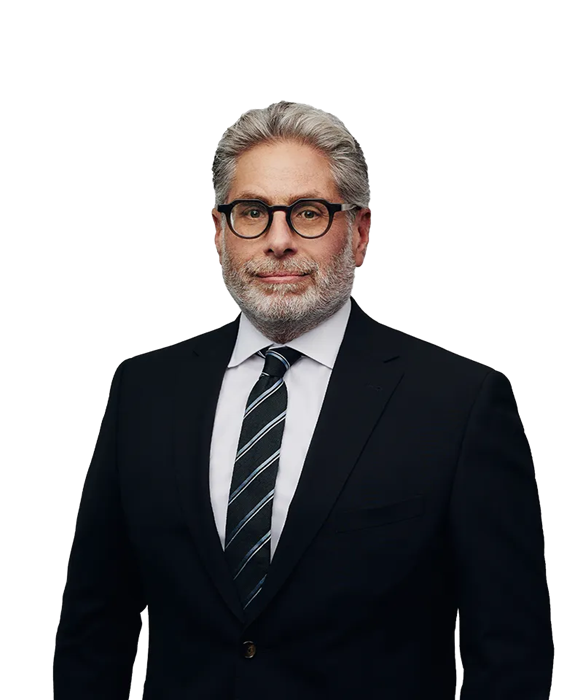As part of an equity investment or financing transaction, investors often seek the right to appoint a board observer in addition to or in place of receiving an actual seat on a company’s board. These arrangements provide an investor with advance notice relating to the company and allow the investor a better opportunity to monitor the investment and keep up-to-date with matters affecting the company’s business.
A recent U.S. federal appellate court decision considering the potential liability of board observers under applicable U.S. securities legislation highlights some uncertainty south of the border regarding the potential liability for these observers. In Canada, similar uncertainty exists given the lack of consideration of the issue by Canadian courts. With that in mind, it is important that investors and their observer nominees understand the risks presented by this role, and take reasonable steps to protect against them.
Obasi Investment Ltd. v. Tibet Pharmaceuticals Inc.
In Obasi Investment Ltd. v. Tibet Pharmaceuticals Inc.,1 the U.S. Third Circuit Court of Appeals (the “Court”) concluded that board observers were not subject to liability under section 11 of the U.S. Securities Act of 1933 for misrepresentations concerning a company’s financial condition in its initial public offering registration statement (referred to as a prospectus in Canada). Section 11 imposes liability on those “named in [a] registration statement as being or about to become a director, [or] person performing similar functions.”
The central question in the case was whether the board observers possessed at least some of the core powers and responsibilities that define corporate directorship such that they performed functions similar to an actual director. On the facts of this particular case, the Court concluded that the two observers were not persons “performing similar functions” to directors, for three main reasons:
- The board observers did not have the right to vote for board action;
- They did not owe a duty of loyalty to the company; and
- Their tenures were set to end automatically on a specified date, so the shareholders would have no opportunity to vote them out.
While the decision in Tibet Pharmaceuticals provides an example of a court’s reasoning in determining whether board observers are subject to liability under the U.S. Securities Act, it does not provide a complete answer to questions concerning their legal status in the U.S. The answer to this problem in Canada is even less clear given the absence of meaningful judicial consideration.
The State of the Law in Canada
There is no statutory authority in Canada that addresses the liability of board observers and to date there is no reported case that considers the issue in any context. However, decisions from the Ontario Securities Commission and the Tax Court of Canada suggest that a person may be subject to the same liabilities as those of a properly elected director where the person performs functions similar to those of a director. While these cases did not involve board observers, their reasoning is nonetheless instructive when considering observer arrangements.
Directors and “De Facto” Directors
Section 1(1) of the Ontario Securities Act (“OSA”) defines “director” as “a director of a company or an individual performing a similar function or occupying a similar position for any person”. Similarly, section 2(1) of the Canada Business Corporations Act (“CBCA”) defines “director” as “a person occupying the position of director by whatever named called”. Both of these definitions are expansive, and intended to catch all individuals who are acting as the “directing mind” of a company. These provisions aim to prevent persons who exercise the powers of a director from avoiding liability by arranging for others to be named under the formal position while maintaining effective control over the company’s affairs.2
In analyzing cases involving the application of these definitions, Canadian securities regulators and courts have developed the concept of de facto directors. A person is a de facto director if, under the particular circumstances, the person is an integral part of the mind and management of the company, taking into consideration the entirety of the alleged director’s involvement within the context of the business activities at issue.3 Where a person is found to be a de facto director, they could be subject to the same liabilities as an elected director.4
If a person takes part in some or all of the following activities, among other things, the person may be considered a de facto director (depending on all of the relevant circumstances):5
- Taking responsibility for the supervision, direction, control and operation of the company;
- Actively managing key aspects of the company’s business;
- Taking an active role in board meetings, including preparing agendas, moving motions, and providing direction to the board or management;
- Voting on or signing board resolutions;
- Instructing professional advisors (such as law firms, accounting firms or financial advisors) on the company’s behalf;
- Preparing and authorizing the content of corporate documents, including promotional materials such as brochures or press releases;
- Negotiating on the company’s behalf;
- Having financial and trading authorization over the company’s accounts; and
- Arranging a public offering.
If a board observer is found to be a de facto director, that observer may be subject to liability as a director, including under securities6 and tax legislation.7 Further, this reasoning could be extended to subject board observers to the fiduciary duty and duty of care owed under section 122 of the CBCA, as courts have emphasized that persons who exercise the powers of a director should not be allowed to avoid liability simply because they have not been formally elected as a director.8
Practical Steps for Board Observers
Given the uncertainty concerning the legal status of board observers, parties who intend to engage in observer arrangements should take steps to protect themselves from potential future liability.
To minimize risk, the observer agreement should expressly define the board observer’s role, function and tenure, and the observer should:
- Ensure that all actions, communications, corporate records (including board minutes) and filings reflect the person’s attendance and status as a board observer, and not as a director;
- Avoid chairing or directing the conduct of board meetings, or other actions that indicate “hands-on” management of the company;
- Not vote on motions or sign resolutions; and
- Not represent to others, through oral representations or by conduct, that he or she is a director.
Authors
Insights
-
Capital Markets
Proxy Advisors Release Updated Canadian Voting Guidelines for 2026
Ahead of the 2026 proxy season, Institutional Shareholder Services (ISS) and Glass Lewis, North America’s two leading proxy advisory firms, have released updates to their Canadian benchmark proxy… -
Capital Markets
SCC Affirms Broad and Contextual Interpretation of “Material Change”
The Supreme Court of Canada (SCC) has provided further guidance on what may constitute a “material change” under Ontario securities law and the leave test for bringing a claim for failure to make… -
Capital Markets
CSA Proposes Amendments to Align Non-GAAP Financial Measures Disclosure Framework with IFRS 18
On November 13, 2025, the Canadian Securities Administrators (CSA) published a notice and request for comment regarding proposed amendments to National Instrument 52-112 – Non-GAAP and Other Financial… -
Capital Markets
Canadian Securities Administrators Propose Semi-Annual Reporting Pilot Project
On October 23, 2025, the Canadian Securities Administrators (CSA) announced a pilot project to allow certain venture issuers to voluntarily adopt semi-annual financial reporting (the “SAR Pilot”). The… -
Capital Markets
Pre-Budget Consultations by The Coalition to Support Investment in Canada
On August 27, 2025, The Coalition to Support Investment in Canada made written submissions in response to the Canadian government’s 2025 pre-budget consultations. The submissions seek to foster… -
Capital Markets
The Going Public Alternative
Since 2023, publicly listed Canadian senior living companies1 have generated strong returns for investors and have been some of the best performing issuers in Canada’s public real estate sector. With…
Featured Work
-
Mergers and Acquisitions
Dream Industrial REIT forms joint venture with CPP Investments
Goodmans LLP is acting as independent legal counsel for the Special Committee of Dream Industrial REIT in connection with a C$805 million joint venture with the Canada Pension Plan Investment Board… -
Banking and Financial Services
Doman Building Materials Group completes reopening of C$170 million senior notes
Goodmans LLP advised Doman Building Materials Group Ltd. in connection with the closing of its offering of an additional C$170 million aggregate principal amount of its 7.50% Senior Unsecured Notes… -
Capital Markets
Brookfield Corporation completes C$250 million preferred share offering
Goodmans LLP acted as counsel for the underwriters in connection with the offering by Brookfield Corporation (“Brookfield”) of 10,000,000 Class A Preference Shares, Series 54 (“Preferred Shares… -
Banking and Financial Services
Algoma Steel secures C$500 million in government financing facilities
Goodmans LLP acted for Algoma Steel Group Inc. in connection with its C$500 million financing transaction with the Governments of Canada and Ontario… -
Capital Markets
Brookfield Infrastructure Corporation announces at-the-market equity issuance program
Goodmans LLP acted as Canadian counsel for the agents in connection with the “at-the-market” equity issuance program (the “ATM Program”) of Brookfield Infrastructure Corporation (the “BIPC… -
Capital Markets
Brookfield Asset Management Ltd. completes US$1 billion cross-border senior notes offering
Goodmans LLP acted as Canadian counsel for the underwriters in connection with a public offering by Brookfield Asset Management Ltd. (“BAM”) of (i) US$600 million principal amount of senior notes due…
News & Events
-
Banking and Financial Services
Goodmans Receives Top-Tier Recognition from The Legal 500 Canada 2026
We are pleased to announce Goodmans has once again received top-tier recognition from The Legal 500 Canada in their 2026 Guide.Recognition from The Legal 500 is based on independent research and… -
Banking and Financial Services
IFLR1000 2025 Recognizes Goodmans Lawyers and Practices
We are proud to announce Goodmans is once again recognized by IFLR1000 in its annual guide.Recognition in IFLR1000 is based on a combination of in-depth qualitative research and direct client… -
Banking and Financial Services
Goodmans Recognized in the Best Law Firms - Canada 2026
Goodmans is pleased to share we are once again featured in the Best Law Firms - Canada 2026, recognizing us as one of Canada’s most exceptional law firms across 42 industries and practices.We are also…


